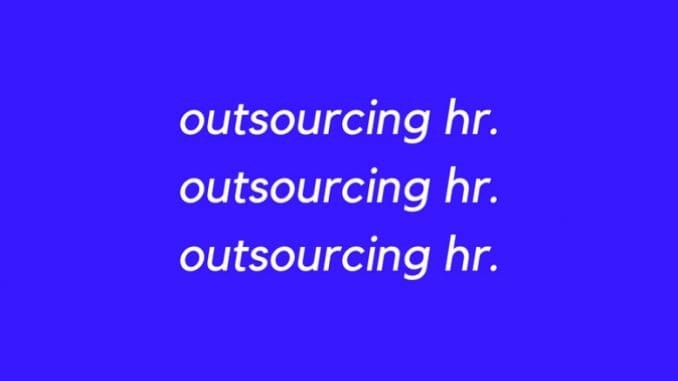
Hiring a full-time human resources person can be next to impossible in coffee, but that doesn’t mean there aren’t options. Here are some ways small companies can outsource their HR needs.
BY RJ JOSEPH
SPECIAL TO BARISTA MAGAZINE ONLINE
This series is an accompaniment to our print article in the June + July 2018 issue of Barista Magazine, “HR For Small Coffee Companies: Know Your Options.” Read part one of our series here.
Katie Booser currently works as chief customer officer at Bellwether Coffee, but before that, her HR skills helped take Blue Bottle from the tiny company it started as to the transcontinental titan we all know today. Over her 10 years at Blue Bottle, Katie grew from barista to trainer to manager to retail manager to running operations on both coasts, then, finally, into vice president of people operations. I talked to Katie about why good human-resource-management systems are crucial to a well-run business and how companies can make them a priority—no matter how small they are or how big they become.
RJ: Can you tell me a little about how you started working in coffee?
KB: After high school, coffee was my job. I started out at a mobile espresso cart outside the natural foods store in Kansas City (Mo.), and I learned how much potential there was to really dive into coffee. Then, I studied to be a chef and moved out to the Bay to work in food. It was a lot harder than I thought it was going to be; I was struggling to find meaningful work, housing, and community, and I basically wanted to get a job to pay my way back home.
I found this café in the Ferry Building that was serving Blue Bottle Coffee—not that I knew what that was at the time—which was one of Blue Bottle’s first wholesale accounts. So I’m working a minimum-wage gig and thinking I’m there for a couple months, then I meet James Freeman and start to talk to him about coffee. James handed me this bag with two David Schomer VHS tapes, and I popped those into the VCR and went back to my days in the coffee cart and felt like I was putting it all together. Through research, through James, through figuring stuff out on my own, I started getting really deep into coffee.

James and I became tight, and not too far down the line I went to work for him full-time. It kept getting busier and we kept hiring more people and I became the manager, then, as we opened more cafés, the head retail manager. As we expanded into more regions, I expanded into more roles and grew with the company. So that’s how I got into coffee and HR.
RJ: Did you ever receive any formal education in HR?
KB: I never went to school for HR. I just did it. In the beginning at Blue Bottle, I did all the hiring, interviewing, and paperwork. We also worked with a payroll company that helped with some of the legal compliance stuff, which is a great option for small companies. So I never went to school, I just learned over time.
RJ: What are some obstacles to small companies having good human-resource-management systems?
KB: One huge obstacle is the mindset that you don’t need help with HR stuff. The other major obstacle is not knowing that there are resources out there that could do a lot of that administrative work for you.
But I honestly think that it’s mainly the mentality that HR is bad or corporate. Lots of people still think of HR as the department that fires people or prevents them from getting workers’ compensation.
RJ: Why do companies need to have HR systems?
KB: Company culture happens the moment you start hiring people, and at a certain point, you just need HR. You need to be legally compliant and above-board—that’s how you protect the company that then employs the people you want to protect.

Small companies don’t necessarily know what they don’t know, and it’s really easy to get swamped in the day-to-day needs of running a business, but it’s important to pay attention to HR systems early on, or you can end up putting your whole business in jeopardy by not being in compliance with the law.
RJ: What are some ways that small companies can approach meeting their HR needs, even with limited resources?
KB: There are two main aspects to HR: the business and compliance side, and the people side—the actual systems and the culture. You can totally meet both of those needs even as a super-small business.
My suggestions for how to create a good HR program for a small company is first, outsource the compliance and business-related part of HR: the legal stuff, the regulations, and the mandates. But vet the company you choose carefully. Interview them and find out if your company’s values are aligned with theirs. At Bellwether we use a company that handles our payroll and our benefits, and their platform has some really cool things that align with our values, such as the ability for each employee to pick a charity and have some portion of their paycheck automatically deducted and sent directly to the charity. Each of our employees has total access to their account to change their address, look at paystubs, check on benefits, and fill out all the necessary tax paperwork. The company we use also defaults to the “they” pronoun when referring to our employees, which I think is really cool and is an example of a value we share.
Once all that compliance and legal stuff is taken care of, it’s like you can rest a little better knowing that at least you are doing all the right things according to the law, and then you can focus on your culture and building trust and modeling authenticity. Those are buzzwords these days, sure, but they still mean the same things they always have.
Next, find a consultant or a mentor who shares your values and start asking questions, start listening, and start letting that ego drop. Check it at the door. Be willing to accept that your perspective could be off, that you might not actually know your company as well as you think. Also, as much as I think it’s good to know what you might be doing wrong, you also need to get clear on what you are doing right. Identify it, confirm it, and measure it so that when your culture changes—because, eventually, it will change no matter what you do to prevent it—you want to know if you need to make adjustments to things that used to work but maybe are no longer working. This happens when companies grow, when you hire more people, when you make a change to your systems or processes. Change happens. Everyone has some kind of struggle with it, so help make it less painful by knowing when it’s happening.
Also, for the people and culture side of things, a great strategy is to pick one of your employees—someone who’s both very responsible and very compassionate—and start growing them into a people-management role. As far as selecting people goes, sometimes the loudest voices can be the most irritating, but people who bring up issues are often the ones you need to listen to, because most people aren’t willing to speak up—so they could be speaking for a lot of others when they voice issues. I think a lot of times we can get frustrated by those loud voices, but they have a lot of potential to identify the right problems and learn how to craft solutions.
There’s no shortage of HR help out there. It’s all about vetting the right people or groups to help your company. There are services out there that are affordable. It’s easy to think that it’s just too complicated to give a manager the training to take care of HR needs in-house, but it’s not; it’s totally doable if you acknowledge that it’s important.
RJ: What are some other things you’d like employers to recognize about HR?
KB: I believe 100 percent that almost everything you need to know is already there, inside your company within each of your employees. Sometimes we overlook the potential that exists within the people that work for us everyday. So it’s important to go to your people and talk to them. But sometimes it’s challenging for an employee to tell their boss the truth. Historically we know that the relationship between labor and management has been contentious. That’s why unions were created: to protect the employee from power used irresponsibly. A boss cannot ignore that the power they hold comes with great responsibility. As the boss, to honestly check yourself on how you are using that power, you need to get help. It is important to get help from someone on the outside who is trustworthy and isn’t afraid to say the hard stuff, but because they are not on the inside they don’t have the same implicit biases that you naturally have as part of a team.
To learn more about excellent HR solutions for small businesses, check out our print article in the June + July 2018 issue of Barista Magazine, “HR For Small Coffee Companies: Know Your Options.”
 ABOUT THE AUTHOR
ABOUT THE AUTHOR
RJ Joseph roasts coffee and writes a blog called Queer Cup in addition to her other adventures in coffee journalism. Her writing focuses primarily on equity, workers’ rights, and alternatives to the status quo. In her free time she loves cooking, reading, and being in Oakland, Calif. You can follow her on Instagram and Twitter.

